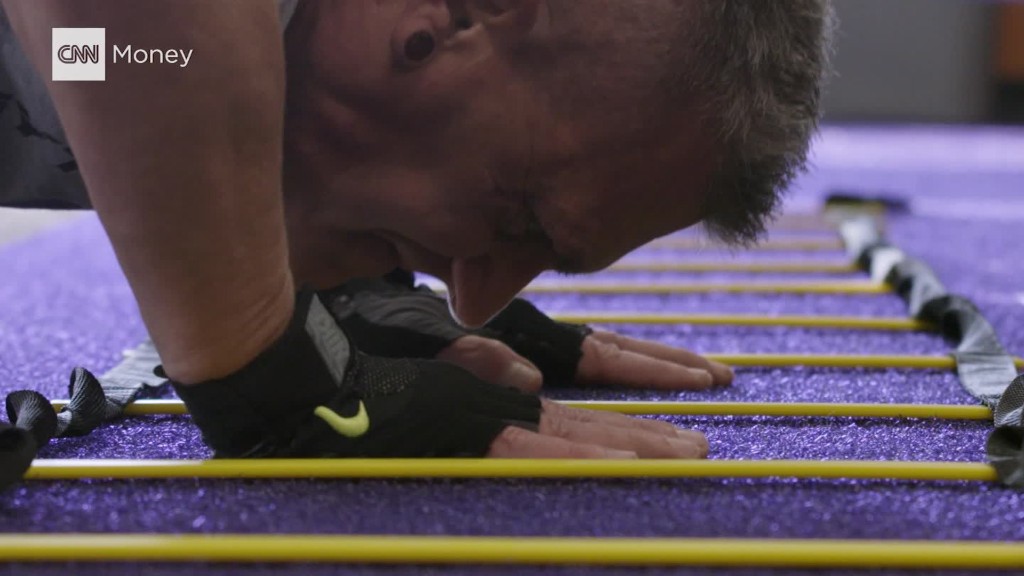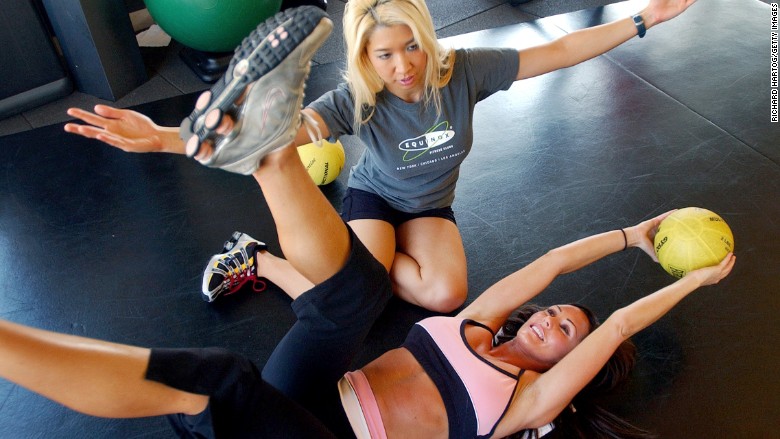
Planet Fitness, Anytime Fitness and Equinox -- three brands that share an industry, but little else.
Equinox has Kiehl's products in the bathrooms. Planet Fitness has pizza on the first Monday of the month.
Equinox is headquartered in New York City, where paying the $170 to $225 monthly membership fee is a status symbol. Planet Fitness (PLNT) calls rural New Hampshire home, charges $10 a month, and markets itself as "The No Judgment Zone." It has over 1,000 locations across the country; Equinox has 78, placed strategically in major metropolitan areas.
And then there's Any Time Fitness, the Goldilocks of the group, with an average monthly price between $35 and $42. Its nearly 3,000 locations are primarily in Midwestern strip malls -- stop by on your way to the supermarket or after dropping off the kids at soccer practice.
But for all their differences, these three fitness heavyweights have all arrived at the same lucrative place, with about $1 billion in annual sales.
The fitness club industry overall is thriving. U.S. gyms generated an estimated $32 billion in revenue last year, according to Integrity Square, an advisory firm specializing in health and active lifestyles.
Related: Here's what it takes to be a ClassPass super user
"There's a tremendous demand coming from all different directions," Equinox CEO Harvey Spevak said.
His company leverages its exclusive image to attract high-net-worth customers. "People are definitely adopting a lifestyle when they join us," he said. "They're buying into a community of like-minded people."
And they're buying into Equinox's high-end amenities, too. "About 40% of our revenue comes from personal training, our retail offering, our spa offering," Spevak said. "So the average member spends about $3,200, $3,300 a year with us."
A bit down-market, at Anytime Fitness, CEO Chuck Runyon said he and his co-founder "saw an opportunity to create a small boutique club that was inviting, less intimidating, and layer in some 24/7 access."

But other gyms at the mid-tier price point, like Town Sports International (CLUB), are struggling. "The average mid-tier operator has to fight on two fronts: pricing pressure on the low-end, and innovative content from boutiques on the high-end," says Pete Moore, managing partner at Integrity Square.
Anytime Fitness is earning its market share through personalization, offering free one-on-one coaching, expanding its group classes, and giving customers tracking technology. "It's Darwinism, survival of the fittest," CEO Runyon said. "It makes every single club owner have to perform better, invest back in their business."
Planet Fitness, meanwhile, is the industry's most disruptive force, finding inspiration in a Seinfeld episode where George Costanza vowed to do the exact opposite of whatever his instincts were telling him to do. "No one ever challenged the status quo," said CEO Chris Rondeau, "so we always said, 'Let's do the opposite.'"
That meant removing heavy dumb bells, eliminating spinning classes, handing out candy, bagels and pizza and, most importantly, charging $10 a month. It was a bold move that gave rise to the high-volume, low-cost segment of the industry and attracted consumers that had been intimidated by gyms and their price points -- people like the schlubby Seinfeld character.
Related: On the road and eating badly
"The industry hated what we did," Rondeau said. "It discredited everything it stood for."
But now they have imitators from surprising places. Equinox -- which also owns boutique studio SoulCycle -- recently launched Blink, a low-cost gym designed to compete with Planet Fitness.
With so many options -- there are over 32,000 health clubs in the U.S. -- more Americans are working out then ever before. When Planet Fitness launched in the early 1990s, 15% of the population belonged to a gym, according to Rondeau. Today, it's 20%.
Rondeau has set his sights even higher: "What does the industry look like when 50% of the population works out?"

